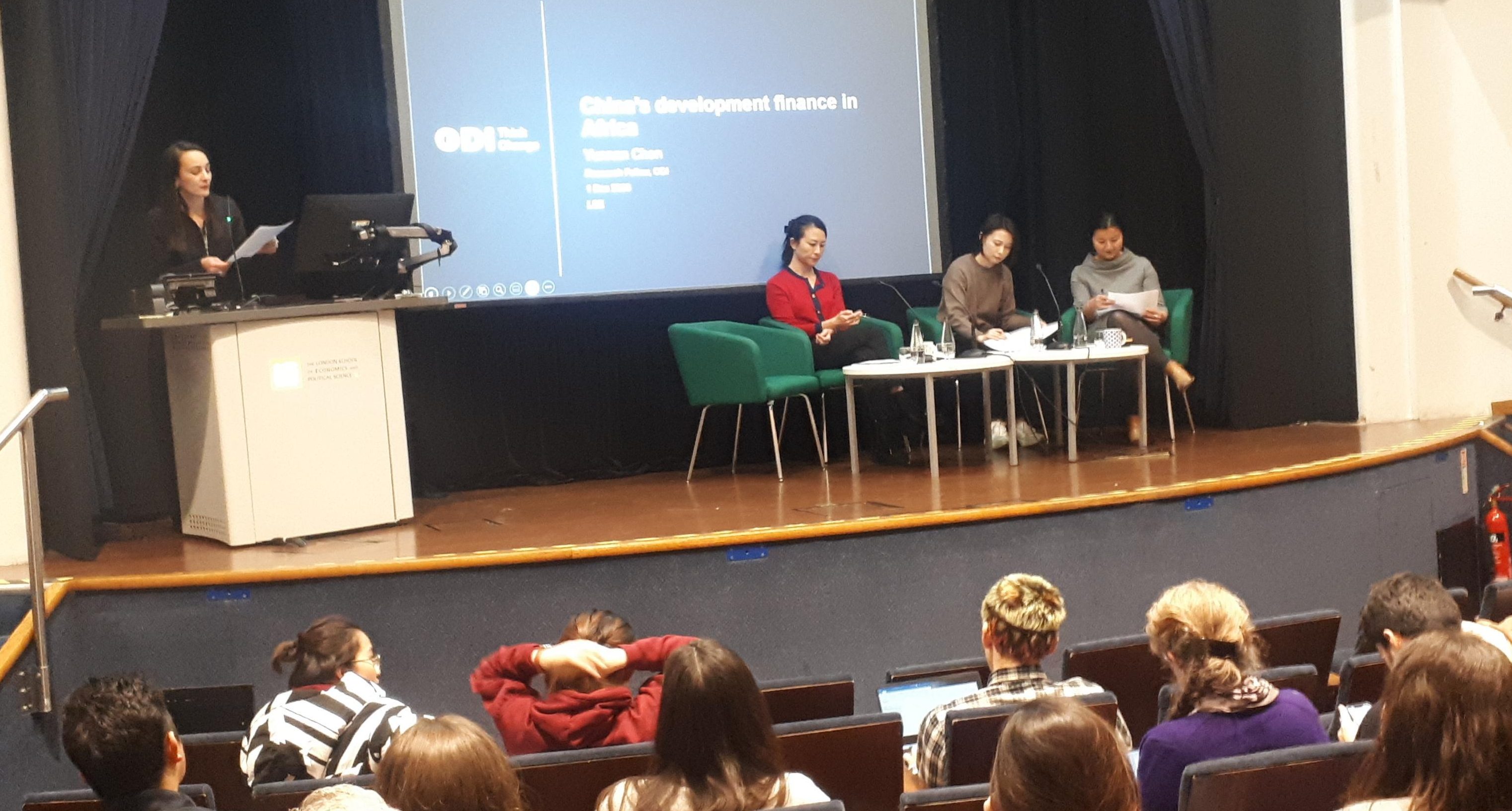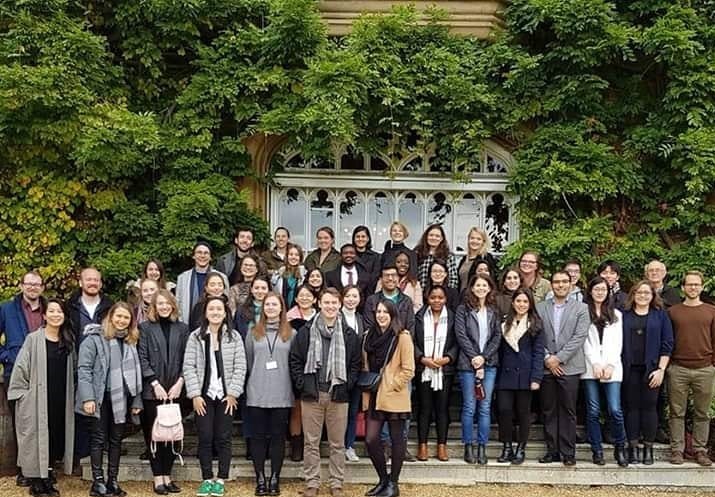On Friday 24 November, Ana Karine Pereira, Geoff Goodwin and Melany Cruz joined us for a panel discussion on ‘The Latin American Left: Opportunities, challenges, and setbacks’ as part of the Cutting Edge Issues in Development Lecture Series for 2023/24. Read what MSc students Maartje Smit and Madison Jacks took away from the lecture below.
You can watch the lecture back on YouTube or listen to the podcast.
Political sentiment within Latin America has been described to represent a pattern of tides. From the Pink Tide in the 1990s, in which left-wing governments took office across the region, to a conservative wave in the 2010s as a response to earlier progressive politics. Now there is the first signs of the second Pink Tide, as Brazil, Bolivia and Colombia have elected left-wing presidents in recent elections. Political waters have been running wild in the region. In this light, the Cutting Edge lecture of Friday 24 November discussed the opportunities and challenges for the Latin American Left, incorporating experiences from three distinct countries. Ana Karine Pereira considered the challenges and opportunities for environmental policies in Brazil, Melanie Cruz examined the feminist movement in Chile, and Geoff Goodwin outlined the shifting political spectrum in Ecuador.
While these politics play out on a national level, the consequences of shifts in Latin American politics extend far beyond the national borders, making it highly relevant for us to keep observing these tides. One particular example of this was outlined by Ana, who described that under Bolsonaro, deforestation of the Amazon rainforest surged, whereas the election of Lula as the new Brazilian president has allowed for a return of environmental regulations to the political agenda. Global stakes in the conservation of the ‘lungs of the world’ are high, since the Amazon produces oxygen and stores carbon, not just for Latin Americans, but for people around the globe. Ana did note however, that while the election of Lula may be regarded as a positive development for environmental policies, the polarization within Brazilian politics may hamper substantive action, as Congress is still largely controlled by the right.
This conclusion is an example of a broader phenomenon within Latin America, which was highlighted by all three of the insightful lecturers: the strong political polarization between the left and the far-right. This political polarization is part of a larger feedback loop. Instability within a country enhances polarization, as the larger feeling of insecurity leads people to take up extreme positions. However, instability may also be caused by polarization. Since it is difficult to establish common goals in a society which is torn between greatly diverging political views, sustainable policies are highly difficult to implement. Regulations that were enacted by previous right-wing governments are undone by newly elected left-leaning politicians, and vice versa. In this process, any long-term development is drowned by political polarization, to the detriment of civil society.
The conclusion that there is little hope for substantial progress in such a polarized environment is one that seems very pessimistic. However, the speakers did end on a more hopeful note. If civil society wants to turn the tide of political polarization and achieve substantial progress, it should not rely on national politics. Rather, there is a challenging opportunity to build a social movement from the ground up, as was done in the feminist movement in Chile, as described by Melanie. In this way, the wider community will be involved to push for more progressive policies.
Maartje Smit
The Latin American left has been a force of change, grappling with a dynamic landscape marked by opportunities, setbacks, and ongoing challenges. With the three guest speakers of this week’s Cutting Edge lecture; Ana Karine Pereira, Melany Cruz and Geoff Goodwin we can examine the cases of Brazil, Ecuador, and Chile.
In Brazil, the contemporary story of the left begins with the election of Luiz Inácio Lula da Silva in 2002, representing the Workers’ Party (PT). Lula’s presidency implemented social programs, poverty reduction, and environmental protection measures. However, the regime’s success was marred by allegations of corruption during Lula’s second term, leading to his imprisonment and reducing trust in the party. The subsequent rise of right-wing populist President Jair Bolsonaro in 2018 was a direct consequence of this corruption scandal. Despite the lack of confidence in the left, Lula was still able to reclaim the presidency in 2022, yet this time with a more tempered left agenda. Despite Lula championing environmental protections and dramatically reducing deforestation, there is still far too much investment by state-owned petroleum company Petrobras in oil exploration. Since Lula’s reelection, left policies have had to contend with a fragmented national congress and residual loyalties to Bolsonaro.
Ecuador experienced a parallel narrative with the election of left populist Rafael Correa in 2006 which marked the beginning of a regime known as correísmo. Correa implemented progressive policies focused on reducing poverty and addressing social inequalities, but his tenure was marked by criticisms of authoritarianism. The election of Lenín Moreno in 2017 saw a departure from correísmo, reflecting internal divisions within the leftist movement and posing challenges to sustaining progressive agendas. Tragically, an increase in poverty and crime and violence has been the result of narcotrafficking. This has set Ecuador’s development back decades, such that Ecuadorians are fleeing in droves. Still, correísmo did not present itself to Ecuadorians as a solution to this massive deterioration in safety and prosperity. Geoff Goodwin posits that this likely stems from widespread displeasure for Correa’s regime blocking a referendum and supporting performative machismo.
Across Brazil, Ecuador, and Chile, the Latin American left faces common obstacles. Economic instability, corruption, and internal divisions are recurring themes. The rise of right-wing populist reactionary elections, as seen most recently in Argentina, is a trend that will persist if the left continues to take transparency and confidence for granted. Additionally, the delicate balance between economic development and environmental sustainability, evident in Amazonia regions, demands careful navigation. Looking ahead, the Latin American left must draw lessons from its experiences in Brazil, Ecuador, and Chile. Addressing internal divisions, building broad coalitions, and articulating a vision that resonates with their diverse indigenous populations are essential steps for political longevity. Furthermore, the left must adapt its strategies to effectively tackle economic challenges while prioritizing social and environmental concerns.
Madison Jacks
The views expressed in this post are those of the author and in no way reflect those of the International Development LSE blog or the London School of Economics and Political Science.





